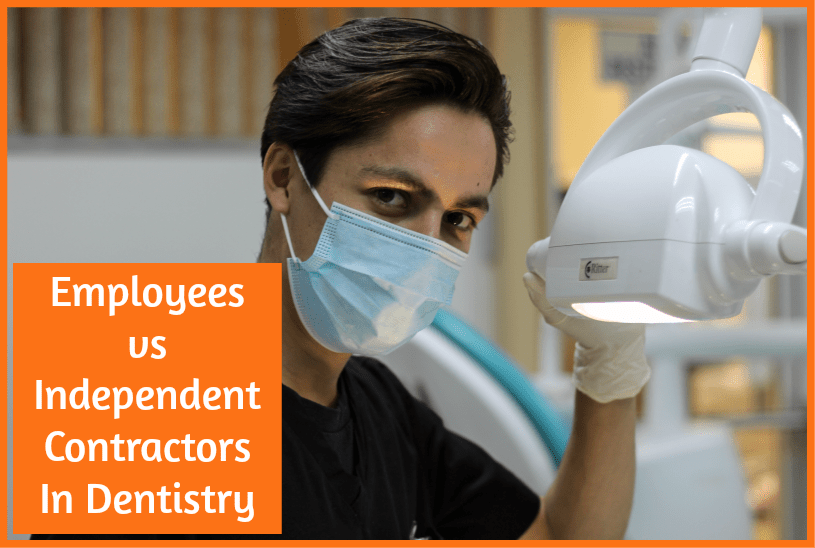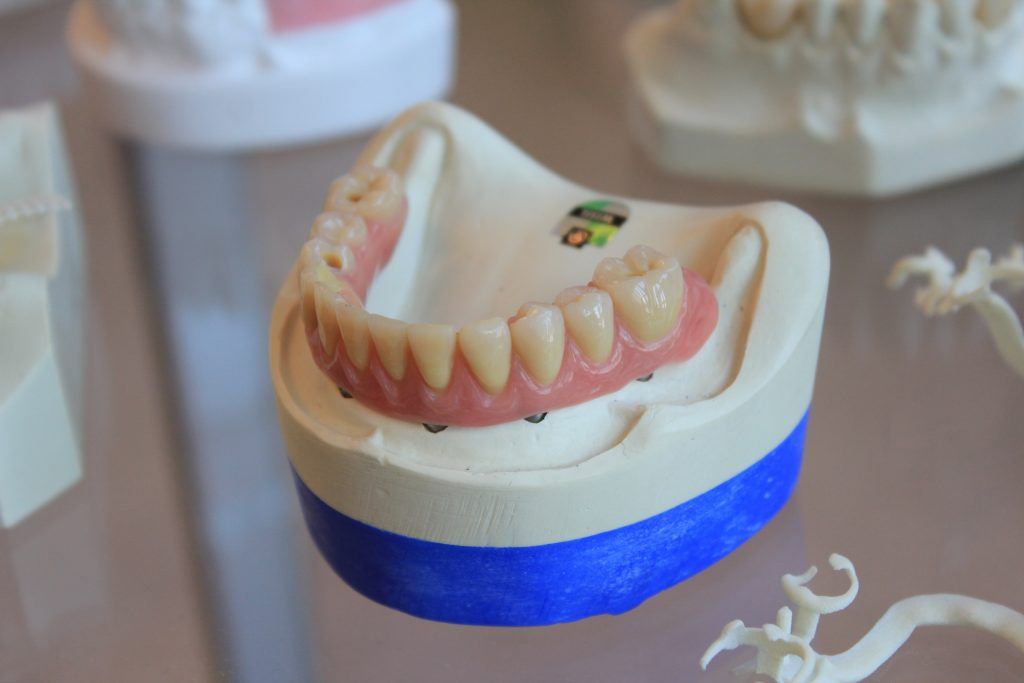
Employees vs Independent Contractors In Dentistry
The difference between employees and independent contractors in the dental industry has been a subject of great confusion for years. Which category your workers fit into makes a huge difference when it comes to taxes and the IRS, but it can sometimes be a challenge to tell them apart.
There are three main things which govern whether someone is an employee or an independent contractor. These are behavior, finances and relationships which are covered below.
For more information, Cloud Dentistry has a comprehensive list of 20 questions to ask to conclude whether someone is an employee or independent contractor.
Definition of an employee
Someone is generally considered to be an employee when the dental practice has more control over their job than they do.
Behavior
A dental professional is categorized as an employee when the dental practice has significant amount of control over the work that the professional does, the way in which they do it and the equipment needed to carry it out.
Finance
If the dental practice determines the business aspects of the dental professional’s job (i.e. how they’re paid, when they’re paid, which expenses are reimbursed) they’re classed as an employee.
Relationship
When there are written contracts in place which list employee benefits (like vacation pay, retirement plans, liability insurance) the dental professional is classified as an employee. If they work exclusively for one single dental practice, the worker will also be seen as an employee.
Definition of an independent contractor
A dental professional is considered to be an independent contractor when they have more control over their job than the dental practice does.
Behavior
If the dental practice has very limited control over the work the dental professional does, the way in which they do it and the tools they use to carry it out, they’re considered an independent contractor.
Finance
When the dental practice doesn’t control the business aspects of the worker’s job, including the way in which they’re paid, they’re seen as an independent contractor.
Relationship
If there’s no contract in place listing employee benefits and the dental professional works for more than one dental practice, they’re classified as an independent contractor.
For dental practices

There are many pros and cons of working with an independent contractor in your dental practice. Here are some of the most prominent ones from an HR perspective:
Pros of working with an independent contractor
- There’s no payroll: when you work with a dental matching service like Cloud Dentistry, they take care of payment, so you don’t have to worry about payroll.
- You don’t have to pay for training: independent contractors are responsible for their own training. Some dental practices take this one step further and request the contractors to also provide their own equipment and supplies.
- No dentist supervision: independent contractors are rarely supervised, so if the dentist isn’t present, they can still practice legally.
Cons of working with an independent contractor
- No loyalty: independent contractors who are hired for short-term jobs won’t be as loyal as your regular staff and therefore won’t be as keen to invest their time and skills on marketing your business, developing strong patient relationships, etc.
- Restricted control: you don’t have much say in the way each treatment is provided, nor the tools or supplies used to carry out each job. This could possibly mean you’re not providing the same level of service to each patient.
- Injury liability: independent contractors aren’t covered by workers’ compensation, so if they’re injured while working, they might be able to sue you and recover damages.
To avoid risks of misrepresentation and the fines and penalties which inevitably follow, it’s important dental practices understand whether they’re working with employees or independent contractors. Before you hire either class of worker, it’s wise to consider the benefits and disadvantages employees and independent contractors will bring into your practice, too.
For dental professionals
Being an independent contractor in a dental practice comes with many benefits and disadvantages. Here are some which will affect you the most from a business owner’s mindset:
Pros of working as an independent contractor
- You can choose who you work for: if you decide you no longer want to work for a certain dental practice, you can stop providing them with your services without any major repercussions.
- Business deductions: you can deduct the cost of any tools and supplies you use in a professional way, along with transport to get to each dental practice when completing your business tax return.
- Determine your own schedule: when you’re self-employed, you can set your own working hours and days off and change them according to how much other work you’re committed to and your lifestyle.
Cons of working as an independent contractor
- You’re responsible for your taxes: as an independent contractor, you need to make sure you pay the correct amount of tax on time.
- No benefits: when you’re self-employed, you don’t receive any employee benefits, such as sick pay or healthcare.
- More difficult to get paid: sometimes you’ll have to chase up an unpaid invoice several times before a dental practice eventually pays it. Working with a modern matching platform like Cloud Dentistry who pays you on behalf of the dental practice is an excellent way around this.
If you’re currently a permanent dental employee and you’re thinking of becoming an independent contractor, there’s a lot to consider from a legal standpoint before taking the plunge. It’s important you’re aware of the pros and cons from the dental practice’s side, too, to help you consider which option will be most likely to provide you with the work you’re interested in.
© New To HR


